ALOR SETAR: RMAF will phase out the Pilatus PC-7 Mk Is for its basic flight training starting next year, said its chief Tan Sri Roslan Saad today. It has already phased out the Alouette III helicopter for the basic helicopter flight training.
The Mk Is have been in service for 33 years while the Alouette for almost 50 years.
The move to phase out the older generation Pilatus trainer is in favour of the newer, Mark II variant.
RMAF will operate 21 PC-7 Mk IIs when five more aircraft are delivered in August, Roslan told the media after presenting wings to 21 newly minted pilots at the Kolej Tentera Udara (KTU) here.
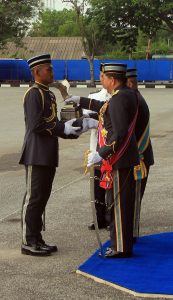
Twelve of the newly minted pilots are the last group to obtain their wings on the Alouettes as the current trainees are already being instructed on the newly delivered Airbus Helicopters EC120B. The rest are fixed wing pilots who trained on the Mark Is and Mark IIs.
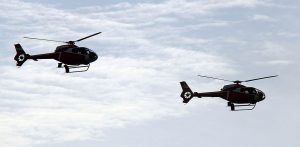
The EC 120Bs are contracted under the Commercially Owned, Military Operated Concept as reported here and here.
Roslan said three EC-120B are already operating at KTU with two more expected by September. Meanwhile, the last pilots to train on the Mark 1 aircraft are expected to graduate from the KTU next year.
As usual Roslan did not want to say specifically the end of service dates for both the Mark Is and the Alouettes.
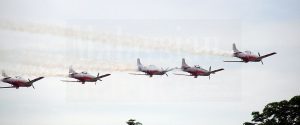
The 21 pilots who obtained their wings today were part of the 37 trainees from the Armed Forces who started the Initial Flight Training course in 2014. Four of these trainees, from the RMN, transferred to No 1 Skn in Kuching to continue with their Navigator course.
For the next stage of flight training, the Basic Flight Training, the remaining 33 trainees were divided into two groups, 17 were instructed on the Mark Is while 16 on the Mark 11s.
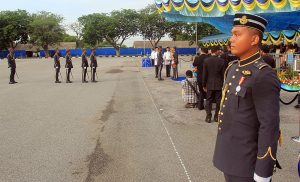
The selection are mostly random though those with the potential to become fighter pilots are usually selected to fly the Mark IIs which are equipped with ejection seats, more powerful engines and digital cockpits.
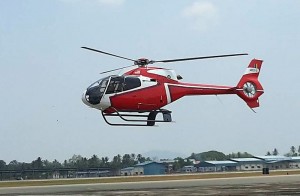
Following further test and flight training, nine trainees (5, Mark I and 4, Mark II) were dropped from the course. From the 24 trainees, 13 trainees (9 Mark I and 4, Mark II) were absorbed into Pulatibang 2 to be instructed in the Basic Helicopter Course. The other 11 trainees continued with their Basic Navigation Course.
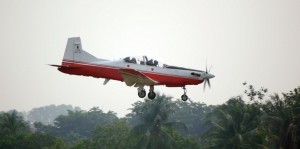
From the 11, only nine passed the navigation course and after passing the Final Handling Test, they were certified to obtain their wings on April 16.
As for the Basic Helicopter, the 12 new pilots started their training in February, 2015, After passing the Academic Phase, the trainees started instructions on the Alouettes on Feb 9. After undergoing a 13 months course, they were certified to obtain their wings.
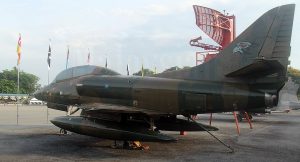
For the fixed wing course, Lt Mohd Nazrin Mohd Nadzri, 26 of Taiping, was judged the best trainee and was awarded the RMAF Chief Trophy. For the Rotary Wing course, Lt Muhammad Aiezuddin Mian, 25 of Kuala Lumpur was judged the Best Trainee and awarded the Nuri trophy.
Mohd Nazrin joined the RMAF from Universiti Pertahanan Nasional Malaysia where he obtained a degree while Muhammad joined the service at KTU where he obtained a Diploma.
After getting their wings, the new helicopter pilots will be posted to the respective squadrons for further training before they could be declared operational airmen.
For the fixed wing group, those selected for the fighter stream, will undergo LIFT at either Pulatibang 3, Kuantan airbase or 15 Skn at Butterworth airbase. For transport, the new pilots will undergo the Multi Engine Conversion Course at the unit now based in Subang. The unit now flies the Super King Air 350.
— Malaysian Defence
If you like this post, buy me an espresso. Paypal Payment


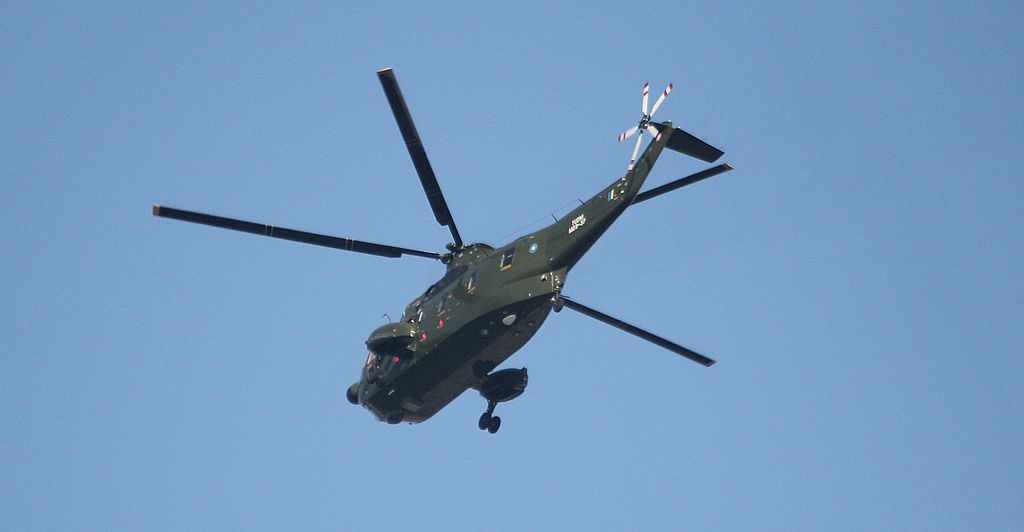
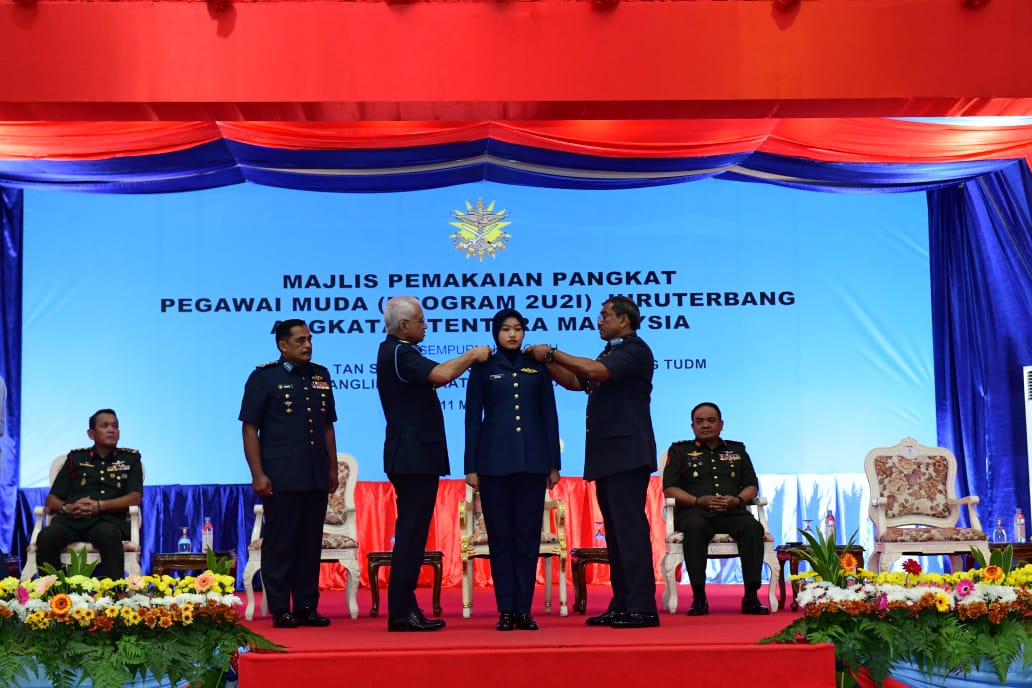
Tudm once operated 44 pc-7 mk1’s.
Is the current operational tempo adequately fulfilled by 21 pc-7 mk2’s?
Additional pc-7 mk2 could be had from South Africa, which is selling some of their fleet. Hopefully a few of the pc-7 mk1 could be kept flying, as a flying historical fleet.
Something similar to the pc-7 mk2, the pc-9 has a more powerful engine in a similar airframe. Actually pc-7 mk2 was derived from the pc-9. Saudi Arabia is replacing their 47 pc-9 with pc-21. On the other hand, UAE is actually keeping their pc-7 mk1, while replacing their BAE hawk jet trainers with turboprop pc-21.
Now I know the training route a flyboy/girl have to go to get their air wing.
BTW,MAF the current trend of retiring older asset but getting newer ones in lower numbers indicates that the new one are way pricier than before, budget not that much.
Reply
After getting their wings, helo pilots get further training at the respective squadrons. For fixed wing pilots, those selected for fighter stream will either undergo LIFT at Pulatibang3 or 15 Skn. Those bound for transport will undergo the Multi Engine Conversion Course at Subang.
Are the retired PC7s to be sold or scrapped? I am thinking of getting an example for the school which will entice a few students to enter the air force after leaving school.An example ( without the Pratt and Whitney ) with access to a complete cockpit will be great!
Reply
The chief did not say anything and I also did not ask on what will happen to the aircraft. However if you want one for your school, you should send a letter immediately to the chief to ask for the aircraft. They may just reserved one for you school. I count at least 12 Mk 1 airframes parked next to dispersal sheds. The aircraft appeared to be intact though I dont think most of it are airworthy.
PC-21 can be used for both basic and medium pilot training, and only those who would become a fighter pilot would proceed to AJT/LIFT, eliminating the need for medium jet trainer(legacy hawk, mb-339) and thus, reducing training cost.
I’m not saying that RMAF should do the same since both hawks and mb-339cm is still good for some 10 more years, but when the time comes, it would be a decent option to buy small amount of LIFT aircraft (like 12) and larger amount of pc-21
New tudm pc-7 mk2
http://i84.servimg.com/u/f84/16/67/34/85/2060.jpg
From maroc forum
Reply
Its different from the Mk 2s already in service which has white vertical tail compared to the all red on the Mk Is.